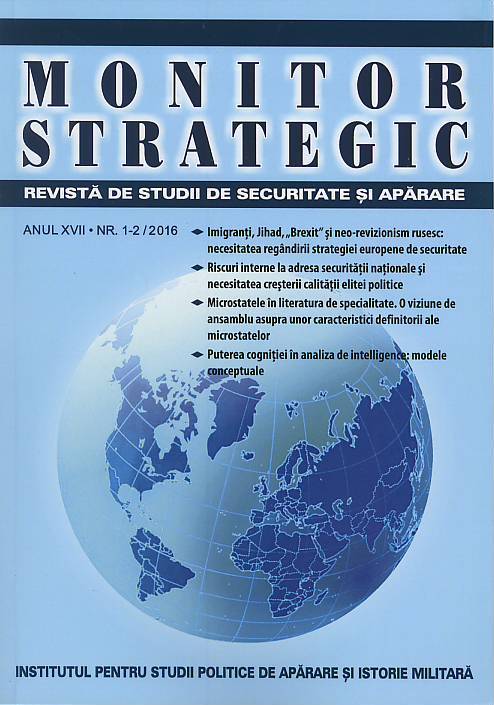Puterea cogniţiei în analiza de intelligence:
modele conceptuale
The power of cognition in the intelligence analysis: conceptual models
Author(s): Cristina PosaştiucSubject(s): Politics / Political Sciences, Social Sciences
Published by: Editura Militară
Keywords: modeling; conceptual models; analytical games; simulation; analytical thinking
Summary/Abstract: Analysts go through cognitive processes in order to scan available data, identify important information and information gaps, generate and structure hypotheses, and, finally, to evaluate and draw relevant conclusions for the decision makers. The process needed to transform data into actionable information and to include it in intelligence products is lynch pinned by implicit cognitive models - tacit and explicit mind representations of systems, phenomena, situations, etc. Models have an important role in aiding the formation of various judgements on key security issues and the analysis of the arguments that form the logical basis for the aforementioned judgements.Intelligence modeling, especially in intelligence analysis, has been promoted mostly in Anglo-Saxon literature, although experts believe that its daily application within the US Intelligence Community isn’t widely spread. This paper aims to strengthen the argument that there is a palpable need for the introduction of conceptual models, analytical games and simulation in intelligence organization’s day-to-day practice in order to consolidate analytical thinking.
Journal: Monitor Strategic
- Issue Year: 1/2016
- Issue No: 1-2
- Page Range: 82-88
- Page Count: 7
- Language: Romany

